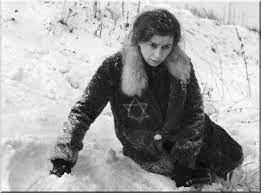Erasmus+Lectureship Mobility Piotr Forecki
Din ciclul mobilităților de predare incoming Erasmus+ Lectureship Mobility, în luna noiembrie Facultatea de Teatru și Film îl va avea ca invitat pe dl. Prof. Piotr Forecki (Adam Mickiewicz University, Poznan, Polonia).
Domnul Forecki va susține două prelegeri interactive în perioada 24-25 noiembrie a.c. despre reprezentări ale memoriei Holocaustului în filmele poloneze, respectiv în alte medii contemporane. Proiecțiile de filme și discuțiile vor explora modalitățile de abordare mai mult sau mai puțin critice ale memoriei Holocaustului în imaginarul polonez
Titlul seriei de prelegeri este:
Soothing with Pictures, Healing through Dreams: How Polish Feature Films After 1989 Shape Holocaust Memory?

24.11 2025, Central, Cluj-Hub, etajul III, 11-13.30
Film: Ida, directed by Paweł Pawlikowski, 2013.
Introducere și dezbatere.
25.11. 2025, Central, etajul IV, Sala seminar, 14-16.00 Prelegere.
Proiecția filmului “Przy torze kolejowym” (By the Railroad), regizat de Andrzej Brzozowski in 1963 urmat de o dezbatere cu publicul
Sinopsis în limba engleză:
Between the end of World War II and the late 1980s, the Polish film industry produced nearly twenty films about the Holocaust that approached the topic within safe boundaries. These films, which were allowed to be shown, did not threaten the national community’s good feelings, did not address Poland’s version of antisemitism, and most importantly, avoided the sensitive topic of Polish society’s attitude toward Jewish persecution. Each film aligned with the existing historical policy, which either used this issue instrumentally or ignored it altogether. After 1989, both historiography and cinema began to explore topics that were previously forbidden, taboo, or distorted in official state narratives. With the end of political restrictions and the start of open public debate, Polish cinema initiated a delayed process of reckoning and revising Holocaust memories. But has this process truly taken place? Have Polish filmmakers genuinely worked to dismantle myths, fill in gaps, and correct distorted Polish memories of the Holocaust? This brief speech aims to examine how the memory of the Holocaust has been shaped in Polish feature films since 1989.
Bio
Piotr Forecki is a professor at Adam Mickiewicz University in Poznan. He has held scholarships at the United States Holocaust Memorial Museum in Washington, D.C., and the European Holocaust Research Infrastructure at Yad Vashem. His research focuses on how the Holocaust is portrayed in popular culture, especially in films and comics. He also studies anti-Jewish violence in post-war Polish history, antisemitic discourse, right-wing populism, and memory studies.
